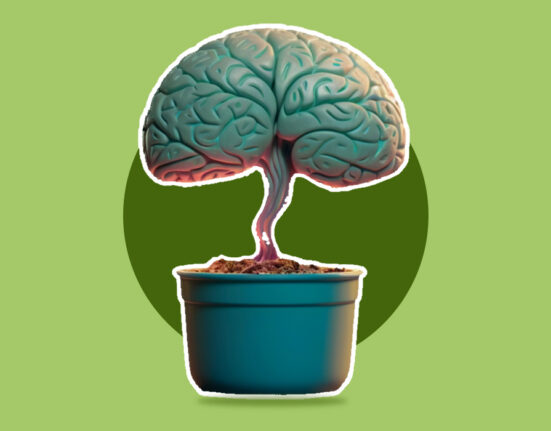Living with depression, you usually feel like you will never be able to get better again. You lose interest in things that you loved doing before. You might feel exhausted, and doing small chores might feel like a big task to you. Some days you wake up, but getting out of bed feels impossible. Taking a shower, eating food, and doing simple things that people don’t think twice about doing seems very daunting to you.
Read More: Depression: Symptoms, Causes, Types and Treatment
Depression can look different for different people. Some of the most common signs of depression usually include feelings of fatigue and feeling like you have no energy, loss of interest in pleasurable things or the things that used to make you happy, and sometimes an overwhelming sense of hopelessness. Depression is not something that you can just “snap out of” or that you can “cure“ with the help of discipline or a bunch of self-help techniques.
It requires proper attention by psychologists and medical professionals. Most of the time people think that depression is just being lazy, which can stigmatise depression, and hence people might feel hesitant to ask for help. However, asking for help doesn’t mean you’re weak. It means that you’re brave enough to take the first step towards healing. Here are some small steps that you can take in order to make yourself feel better when you are depressed.

1. Try Creating a Routine for Yourself
Creating a routine for yourself and consistently showing up can be very beneficial when you’re dealing with depression. You don’t have to do each and everything in one day. Just having a simple structure to your day actually makes it very easy to stick to it and also to stick to certain healthy habits. You can also create a small to-do list in your everyday life, which can help you to get through your day and also help you function in your life more adequately. When you tick off things in your to-do list one by one, it gives you a dopamine boost which helps you to feel better and also to keep you motivated.
2. Movement and Exercise
Research has shown that movement and exercise do help you when you’re feeling low and depressed. However, when you are feeling low, the idea of exercise can seem very overwhelming. But in order to feel good you don’t need to do a whole workout routine. Simple movements such as taking a 30-minute walk, or just getting out of your chair or bed and stretching gently can help your body release Its feel-good hormones. Physical activity tends to boost serotonin and dopamine, which play key roles in regulating our affect and emotions. All these little actions can help you break that cycle and also lift your mood.
Read More : 10 Mood Boosters that are Absolutely Free

3. Sunlight and Nature
We tend to underestimate the power of sunlight and nature when it comes to mental well-being. Research has shown that exposure to natural light can actually increase serotonin levels in your brain which can boost your mood. You can just spend a few minutes outdoors or on your balcony, and that can help you to improve your mood. Your body craves light and giving it even small amounts of it can help with the feelings of sadness and heaviness.
4. Prioritising Rest
Living with depression, also, something comes with continuous feelings of fatigue and low energy. Even though you feel very low and fatigued you might find it very difficult to find opportunities to rest. It might be due to the guilt surrounding taking a break or negative thoughts. However, you need to realise that breaks and rest are not something that needs to be earned. We might feel exhausted from all the emotional strains, everyday stressors or even from the constant expectation to be on all the time. During this time, rest becomes very important.
Rest can come in many forms, depending on what you need for physical, mental or emotional rest. One way to wind down and allow yourself to rest is to simply take a nap. You can also try to just sit quietly and focus on your breath, this can give you calming effects. Sometimes, you might feel very emotionally tired, but during this time you can write down your thoughts and clear up that mental clutter. Sometimes doodling or colouring activities can be very soothing and meditative.
Read More: 10 Powerful Benefits of Practicing Mindfulness Every Day, According to Psychology
5. Social Media Detox
You can be mindful about how much time you spend on social media. Social media can often lead to feelings of inadequacy, isolation and overstimulation. During the depressive episode, it is wise to take a detox from social media. When we are scrolling through social media, there is a tendency to compare ourselves with other people, it also exposes us to negative news, and seeing others highlight some bits of their perfect life can contribute to feelings of low self-esteem.
You might also feel overwhelmed by information overload and taking a break from social media can help you to reduce that cognitive load, making you feel a little more grounded. Sleep is very crucial for psychological well-being. So when you take a break from social media, you are more likely to sleep better. Being on your phone excessively or right before bed can be very detrimental to your sleep.
Read More: The Constant Need to be Active on Social Media Platforms
6. Having a Good Sleep Schedule
As we have discussed in the previous point, sleep is very crucial for mental well-being. Sleep disturbances lead to symptoms such as irritability, fatigue, and difficulty in focusing on tasks. But why is that, let’s explore the neurological basis behind it. Studies have shown that poor sleep quality is associated with increased activity in the amygdala which is responsible for our emotional processing, particularly fear and aggression. People who experience sleep disturbances are more prone to emotional instability and affect disturbances.

Moreover, our prefrontal cortex interacts closely with the amygdala. Sleep deprivation can also impair the prefrontal cortex’s ability to regulate the amygdala which can sometimes lead to impulsive be and negative thought patterns. Moreover, sleep disturbances can also lead to an imbalance in the level of serotonin neurotransmitters, which plays a significant role in mood stabilisation. This is why many antidepressants focus on regulating these serotonin pathways.
7. Try Taking Up Small Creative Projects
When considering creativity, many people might think, “I’m not creative,” “I can’t draw,” or “I can’t sing.” However, human beings are inherently creative beings. We have the natural tendency to find solutions for various problems and our mind is capable of developing abstract thoughts and new knowledge. And we have a rich history of creating art, music and literature. Every person is creative and creativity is not always manifested in big magnificent actions. You can take very small ways in order to express your creativity.
For instance, trying adult colouring books can be comforting. Try to pick small simple hobbies which do not feel challenging to you. You could begin baking, cooking, or reading something. Hobbies don’t have to be time-consuming and energy training. They can simply provide you with a haven from your negative emotions and thoughts. Performing these small and simple activities can feel like an accomplishment, which in turn can increase the dopamine levels in your brain. Hence making you feel better.
Read More: 10 Subtle Signs of Highly Creative People, According to Psychology
8. Try Spending Time Around Other People
Depression can feel very isolating, reaching out to somebody or talking to friends can seem very energy-draining and even a daunting process. Social connections are very crucial. Whenever we have a positive social interaction with people, our brain releases a neurotransmitter called oxytocin which is often known as the “love hormone” or “bonding hormone.”
The release of oxytocin can help you reduce stress and help you build a connection with other people. This can help us to counteract the feelings of isolation and hopelessness. Apart from this, connecting with other people provides you with validation and emotional support which can help you to combat negative thoughts. Simply knowing that someone cares about you and someone listens to you can help you get rid of the feelings of worthlessness and hopelessness.
One of the characteristics of depression is having a very negative self-perception and social interaction can provide us with positive reinforcement which contributes to improving our self-esteem and increased feelings of belongingness. Social isolation can lead to the worsening of depressive symptoms, hence, breaking the cycle by reaching out to other people and having a social network can help you deal with some aspects of depression.
Conclusion
Even while you’re reading this, you might think to yourself what if these approaches and procedures don’t work? Your depression might try to talk you out of doing some of these approaches. But you don’t have to take a quantum leap or make a radical change in order to help yourself. Fostering a mindset of “let’s try” can significantly help you to engage in these small steps.
For example, your depression might tell you that reaching out to your friends is futile, they won’t understand what you’re going through, and it will convince you that isolating yourself is much easier and safer. However, you can remind yourself that you just need to try and send a simple message to your friend. You will be surprised how these small acts of just reaching out to somebody can help you bring relief and hope. Seeking professional help from a therapist or medical professional is crucial while experiencing depression. However, these are some strategies that you can try at home, which will alleviate some of your symptoms.
References +
- Acar, S., Tadik, H., Myers, D., Van der Sman, C., & Uysal, R. (2021). Creativity and well-being: A meta-analysis. The Journal of Creative Behavior, 55(3), 738-751. https://doi.org/10.1002/jocb.487
- Bratman, G. N., Hamilton, J. P., & Daily, G. C. (2012). The impacts of nature experience on human cognitive function and mental health: A review. Annals of the New York Academy of Sciences, 1249(1), 118-136. https://doi.org/10.1111/j.1749-6632.2011.06400.x
- Butcher, J. N., Mineka, S., & Hooley, J. M. (2018). Abnormal psychology (17th ed.). Pearson.
- Goldstein, A. N., & Walker, M. P. (2014). The role of sleep in emotional brain function. Annual Review of Clinical Psychology, 10(1), 679-708. https://doi.org/10.1146/annurev-clinpsy-032813-153716
- Hou, W. K., Lai, F. T., Ben-Ezra, M., & Goodwin, R. (2020). Regularizing daily routines for mental health during and after the COVID-19 pandemic. Journal of Global Health, 10(2). https://doi.org/10.7189/jogh.10.020308
- HOODA, V. S., MULEY, P. A., MULEY, P. P., ANJANKAR, A., & BANDRE, G. (2024). Effect of exercise on depression, anxiety and mood: A narrative review. Journal of Clinical & Diagnostic Research, 18(1). https://doi.org/10.7860/JCDR/2024/15954/17643
- Ozbay, F., Johnson, D. C., Dimoulas, E., Morgan III, C. A., Charney, D., & Southwick, S. (2007). Social support and resilience to stress: From neurobiology to clinical practice. Psychiatry (Edgmont), 4(5), 35-40.
- Roecklein, K. A., & Rohan, K. J. (2005). Seasonal affective disorder: An overview and update. Psychiatric Times, 22(10), 66-72.
- Wang, D., Hagger, M. S., & Chatzisarantis, N. L. (2020). Ironic effects of thought suppression: A meta-analysis. Perspectives on Psychological Science, 15(3), 778-793. https://doi.org/10.1177/1745691619897844
- Xie, Y., Wu, Z., Sun, L., Zhou, L., Wang, G., Xiao, L., & Wang, H. (2021). The effects and mechanisms of exercise on the treatment of depression. Frontiers in Psychiatry, 12, 705559. https://doi.org/10.3389/fpsyt.2021.705559













Leave feedback about this